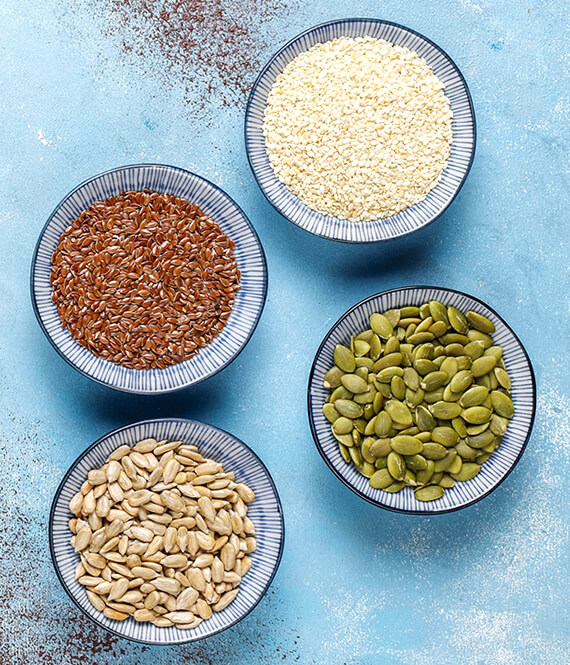
7 Essential Nutrients During Pregnancy
We recommend helpful products in our articles. Read our full disclosure here. The content on this website is not intended to be a substitute for professional advice, diagnosis, or treatment.
The pregnancy journey isn’t easy — our article on ‘Your Health & How It Impacts Your Fertility’ even shows that you should be mindful of the health and lifestyle choices you make before you’re pregnant.
You can talk to a fertility specialist to help improve your fertility.
They can give you tips such as sleeping well, exercising, and quitting smoking can improve your fertility.
But once you’ve finally become pregnant, you’ll have to continue being mindful of your choices, more specifically the foods that you ingest.
For instance, you’ll need to be careful about what you put in your body.
This means no alcohol and caffeine as these can affect the developing fetus.
You should also be more aware of the nutrients that you consume since certain ones play a key role in your baby’s growth.
Below are the essential nutrients you should take note of.

Calcium
Calcium is the most abundant mineral in your body.
It’s mostly known for its role in giving structure and hardness to bones and teeth.
However, it’s also essential for many other body functions, like helping improve blood flow and helping nerves carry messages between your brain and body. VeryWell Family warns that calcium deficiency can lead to premature birth and low birth weight.
The baby may also experience slow growth and not have enough calcium in their bones.
The daily recommended intake of calcium for pregnant women is 1,000 mg.
Though there are prenatal vitamins, you’ll still need to supplement that with additional calcium.
Dairy products are great sources of calcium, but you can also get the nutrient from dark leafy greens and fatty fish like salmon.
Iron
Iron is a mineral that produces hemoglobin, a protein in red blood cells that carries oxygen from the lungs to the rest of the body.
During pregnancy, you’ll need 27 mg of iron daily, which is twice as much as the required daily iron intake of non-pregnant women.
Not having enough iron will result in iron deficiency anemia, which increases the risk of premature birth.
Iron deficiency is also associated with low birth weight babies and higher risks of infant death immediately before or after birth.
Fortunately, most prenatal vitamins already contain 27 mg of iron.
But there are also iron-rich foods you can incorporate into your diet.
These include dark leafy greens like spinach and kale, oysters, and lentils.
Red meat and liver are good sources of iron too.

Folic acid
Folic acid, also called vitamin B9, is important in the formation of healthy red blood cells.
This is actually a vitamin that you should start taking before you’re pregnant and continue all throughout your pregnancy.
Several posts on the health resource site SymptomFind have highlighted how this particular vitamin can prevent serious birth defects.
Not having enough folic acid will put your baby at risk for neural tube defects like spina bifida, leading to serious disabilities and even death.
To prevent this, you should consume 600 to 800 mcg of folic acid daily when you’re pregnant.
Some sources where folic acid is naturally found are dark leafy greens, beans, nuts, and liver.
It’s important to also take a folic acid supplement daily.
Vitamin D
Vitamin D is involved in a number of the body’s processes, such as the absorption of calcium, supporting lung function and cardiovascular health, and protecting immune and nervous system health.
You should consume 10 mcg of vitamin D daily for a healthy pregnancy.
Having vitamin D deficiency may cause problems like low birth weight, fragile bones, neonatal hypocalcemia, and a higher risk of autoimmune diseases in the baby.
Fortunately, vitamin D occurs naturally in many foods.
Some examples are fatty fish like salmon, eggs, milk, and liver.
Your body can even produce this vitamin when your skin is exposed to sunlight.
A few minutes of sunlight in the morning is the best way to get vitamin D since exposure to the afternoon sun can put you at risk of skin cancer.
Protein
Proteins are called the building blocks of life.
This is because every cell in your body has protein. HelpGuide lists its many health benefits, such as maintaining the health of your immune, cardiovascular, and respiratory system.
It helps you maintain a healthy weight too.
The recommended daily intake of protein for pregnant women is 70 to 100 g, depending on your weight and what trimester your pregnancy is (you need more the closer you are to giving birth).
Not having enough protein can affect the growth of your baby’s tissues and organs.
You can get protein from many sources, however, you should distinguish between high-quality and low-quality protein.
Low-quality proteins are processed meats, which can increase the risk of cancer.
Instead, great sources of high-quality proteins are fish, poultry, and dairy products.
DHA
DHA, short for docosahexaenoic acid, is an omega-3 fatty acid that protects heart health, improves vision, and reduces the inflammatory response.
But for fetal development, DHA is essential for brain development.
Pregnant women should intake at least 200 mg of DHA daily.
Having DHA deficiency may compromise your baby’s neurological development, possibly leading to autism and ADHD.
Less DHA may also result in lower early visual acuity.
Your body can actually make DHA, though not in significant amounts, so you’ll need to turn to supplements and dietary sources.
Fish oil is a good source and a typical dose is 5g, containing 72 to 312 mg of DHA.
Seafood is also a great source of DHA.
Some examples include shrimp, oysters, and fatty fish like salmon and mackerel.
Iodine
Iodine is used by the body to make thyroid hormones, which control functions like metabolism and those related to growth and development.
You typically wouldn’t have difficulty getting the required amount of iodine they need, but pregnant women will also be providing for their developing fetus.
According to published research in The Lancet, Iodine deficiency is the leading cause of intellectual disability worldwide, making this nutrient a very important component for healthy brain development.
To ensure your baby’s healthy development, you should intake 220 mcg of iodine daily.
The most obvious source of iodine is table salt.
Seaweed, saltwater fish, and seafood, in general, are good sources of iodine as well.
Keep in mind, however, that processed foods and fast food may have salt, but they’re not always iodized salt.
Pregnancy requires you to be more mindful of your health, including what nutrients you consume. Focus on a healthy and nutritious diet both for yourself and your baby!
For more articles on health and wellness, check our blog here on Shine Sheets.
"We love to research problems, examine studies, analyze solutions, and share with you ideas that make life healthier. You can learn about us and our editorial standards here. Have suggestions or feedback to share? Send us a message!."













Leave a Comment